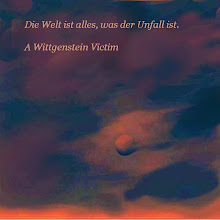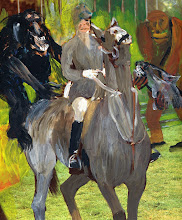Infiltrated, polluted and cajoled by podcast-(p)ushers spamming up my emails, I listened to a podcast from the New Yorker – one of a whole swarm of podcasts supposed to turn you if not overnight at least after countless hours of dazed listening into a genius or someone who can reasonably fake it. The New Yorker podcasts house hours and miles of author voices – who can put you straight to sleep. For the first time ever I heard words of Harold Brodkey whom I mixed up with Joseph Brodsky (so much better – a direct descendant on his father’s side of an ‘ancient Rabbinic dynasty’). Harold Brodkey died almost in the same Aids wave in New York as Reiner Schürmann (sociological curiosity my excuse for listening to his ‘story’). The reader is a gay writer of a certain age (who doesn’t want to be necessarily considered gay in his writing) from Cincinnati.
The story “Dumbness is Everything” is fairly rudimentary – only just giving the lay of the land – that sexualized geography around NYC in its rich hinterlands of Westchester County and a married couple driving home drunk from one of their boozy parties. Just a few breaths before the word popped up in the story – I already heard, felt, smelled – this is Gatsby land – and obligingly in the foaming spray of words – out came “Gatsbyoid” to describe the power vectors tensing between the conjugal two backed beast on the conjugal sublet lawn under the starry skies of Great Gatsby country. The beginning of the tale is promising – a few asides about the property relations of the wife’s Mafiosi-ish family. The reader of the story, whose choice it is, says it is about class and class bodies – somehow a taboo in American prose. Upper Mafiosi class, Harvard class – the Jewish boy ‘made good’ who sneaked into Harvard is pitted against the she-demon scion of a Mafiosi family whose considerable not so old wealth comes from money laundering and shady real estate deals. (Sort of a fifties ancestral prototype of the dynastic union between Jared Kushner and Ivanka Trump?)
She moves as if she were brandishing a riding crop. Where they live though seems to be in essence parvenu-pariah land – the other houses scattered on the slope are “owned by Jews”. So is this sexed up class war really just a turf war between rival fractions of the pariah-parvenu class – rather than a genuine gentile versus pariah reciprocal seppuku/lingchi pact? A moot point?
Other than the ‘mindless topology of the highway’ - the only setting of the scene Brodkey concedes is how the couple in their drunken stupor try to ferry in unnoticed into that Westchester village where they are domiciled, sneaking past the only light – the lighted gas station and police station. This sounded so familiar. Almost. Except the lighted police station in our village is just a mock up – or even if it’s lighted and even if police bodies are inside they’re not there for us, to protect us. They’re there explicitly professionally to ignore us. It is an empty shell of a police station but conscious of its emptiness.
Besides these two monuments of rural villagehood – the story never strays from the grounds of their estate. They live in the caretaker’s cottage which they never reach in that very long story – seeming to end numerous times but refusing to die just like that. (Brodkey wrote it at the end of his terminal illness.) They stop at the lawn – a sloping lawn, near a garage, a stone or brick wall – where clothes are torn, pulled off – and then it’s just the landscape of their fucking bodies on the lawn – commandeering and commanded – a few token snatches of dialogue about ‘who might see us’ – how alone they are on their expensive borrowed lawn. Sex in that vintage year some time in the fifties – “at sea on the lawn” – had a bronze like character. Bronze kisses, caresses, ‘nuzzles’, licks, scratches and other tactile ploys – the woman is unexpectedly a ‘bad kisser’ but her mushy lips thicken the plot. The gargantuan fuck on the lawn – Westchester County’s tribute to “Dejeuner sur l’herbe” - is interrupted occasionally so the author can take note of plant life, the air, a passing cloud of party ghosts. The story’s reader denies that there is any nostalgia in it. The present of 1954 or so is just not happening now, but somehow eternally then.

Brodkey does his best to de-conjugalize the sexual congress on the lawn – to make it less proprietary. Still the story begins with an inventory of property relations – lest doubts arise later – on whose land they’re fucking.



















.jpg)













